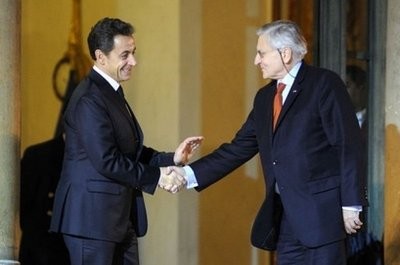European Central Bank head Jean-Claude Trichet rose to the defense of the euro Friday, describing it as a "credible" currency that was not in crisis while calling on EU leaders to increase rescue funds.
"I think that we have to see that we have a currency that is credible," Trichet told RTL radio a day after the ECB backed an extension of special measures to tackle eurozone debt pressures.
"There is no crisis for the euro as a currency ... We have problems of financial instability that are the result of budget crises in certain European countries," he said.

Trichet urged EU leaders to increase the 440-billion-euro (590-billion-dollar) European Financial Stability Facility (EFSF) set up in May as part of a debt bailout for Greece and which will be tapped as part of Ireland's rescue package agreed at the weekend.
"We are certainly encouraging governments to go as far as possible in being commensurate to their challenges," he told journalists, saying it is "important that their capacity be as effective as possible including when quantity is at stake."
French President Nicolas Sarkozy reiterated his confidence in the currency later Friday following a meeting with Trichet.
In a statement, Sarkozy said the euro was a credible currency "which had acquired in its 10 years of existence the status of the world's second reserve currency."
Sarkozy welcomed "the determined action of member states and European institutions to preserve the stability of the eurozone."
"The return of growth in the eurozone, particularly in France and Germany which account for nearly half of eurozone GDP, is stronger than predicted," he said.
Jean-Claude Juncker, the head of the Eurogroup of eurozone finance ministers, also defended the future of the single currency.
"The euro will survive" the turbulence due to the Greek and Irish crises, Juncker said in a speech in Berlin.
"It is dangerous gibberish to say that the euro is threatened," he said, adding that without the single currency the eurozone would have "sunk into economic and financial chaos."
Trichet's call for increased rescue funds came after analysts questioned whether the EU could afford to bail out both Portugal and Spain, which have both come under intense pressure on the market since Ireland and Greece were rescued.
The ECB on Thursday left its key interest rate at a record low of 1.0 percent but said it would extend cheap emergency funding for the commercial banks through the first quarter of 2011.
Crucially, the ECB also said it would continue to buy government bonds to help ease pressure on a growing list of financially vulnerable eurozone countries -- Belgium, Greece, Ireland, Italy, Portugal and Spain.
While it gave no indication it would increase its purchases, traders said it stepped up its buying of Irish and Portuguese bonds.
Trichet said Friday the decision to leave interest rates unchanged at 1.0 percent "is what we think is necessary to continue to provide our fellow citizens ... price stability, which is our mandate."
























